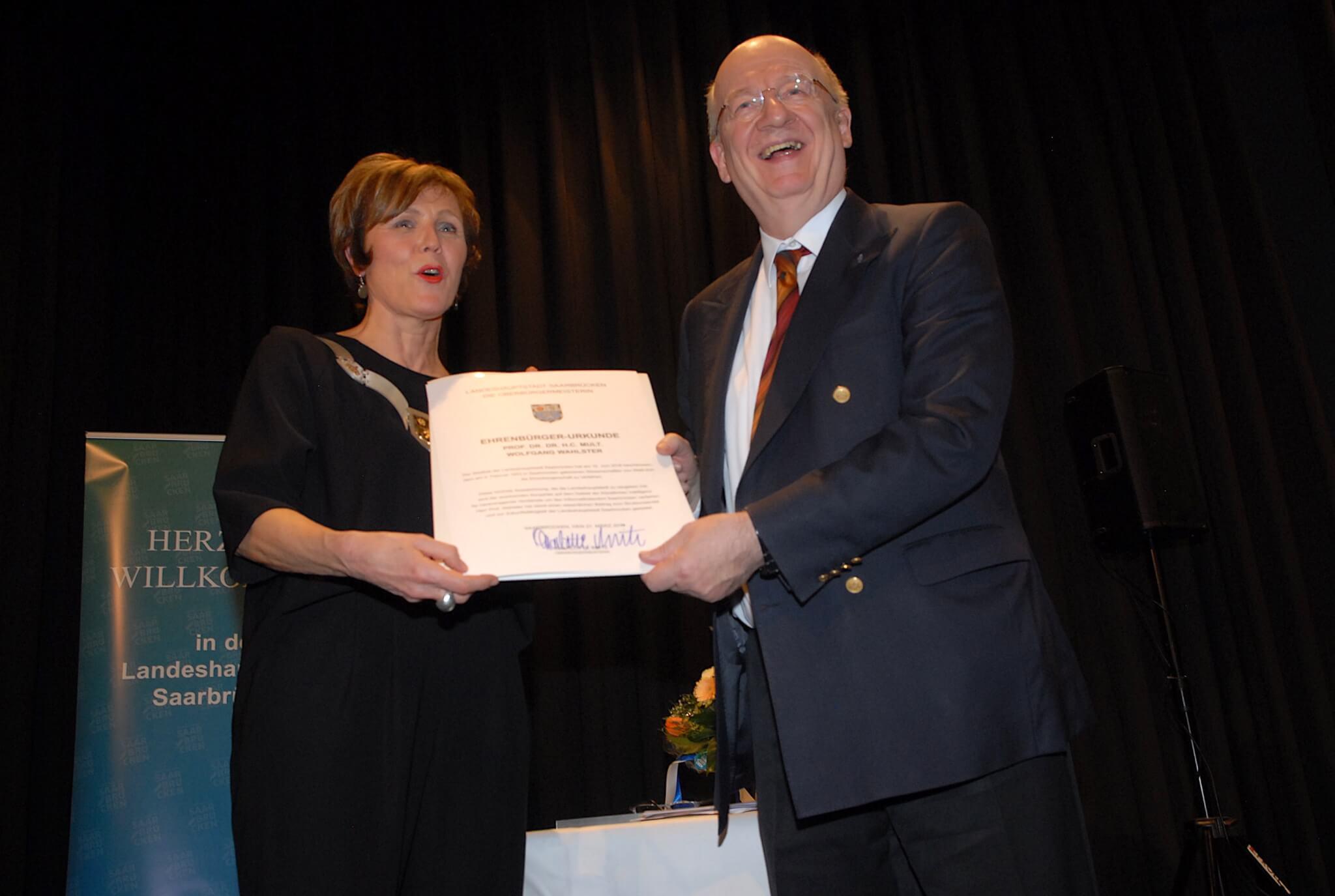News Archive

Yesterday evening Mayor Charlotte Britz awarded the honorary citizenship of the state capital Saarbrücken to Professor Wolfgang Wahlster. With this award, the city of Saarbrücken honors Wahlster’s achievements “in the successful establishment and further development of Saarbrücken as a leading location for information technology “. This makes Wahlster the first scientist to receive this honor. Wolfgang Wahlster, born in Saarbrücken in 1953, studied computer science and computational [...]

“IT Inkubator GmbH“ at Saarland University is offering a new, nationwide start-up program to ensure that start-ups can be established more quickly and successfully. The aim is not only to transform the ideas and inventions developed on the Saarland Informatics Campus into products, services and spin-offs. Students and researchers from other universities and research institutes can also use the new program to set up companies or advance their technology to such an extent that established industrial [...]

With the British film “Ex Machina”, the film series started last week in the Filmhaus Saarbrücken cinema. Around 90 people attended [...]

This week, ZF Friedrichshafen AG opened a new research center at the Saarland Informatics Campus (SIC). In the “ZF AI & Cybersecurity Center”, the global automotive supplier intends to research how artificial intelligence can be used profitably in the automotive industry.

Artificial intelligence (AI) serves people as a digital assistant, monitors faces and checks creditworthiness. The potential of this technology has fascinated filmmakers since 1927. In recent months, progress has been so tremendous that the question is whether reality has overtaken fiction on the big screen. Starting March 13, the Filmhaus in Saarbrücken, together with the Competence Center for Computer Science and the German-American Institute, will therefore be organizing the film series “KI [...]
5354555657 ...
70»
